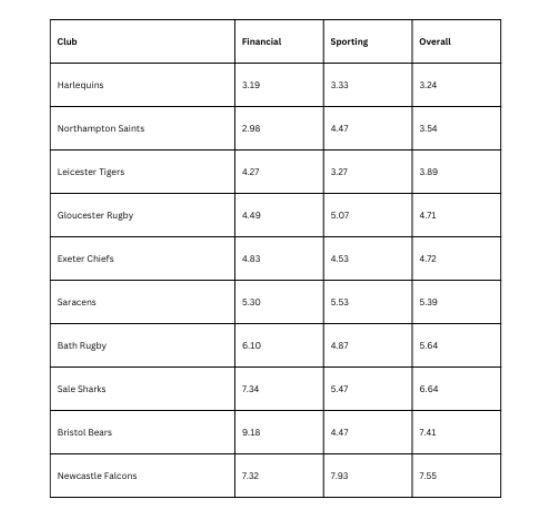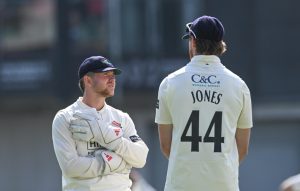Financial health of England’s rugby clubs revealed

Harlequins have been named as England’s best-performing rugby club on and off the pitch, according to the Leonard Curtis Rugby Finance Report, which the firm is calling “the first-ever comprehensive index of the financial health of clubs in England’s Premiership”.
Leonard Curtis says publication of the report was inspired by growing concerns over the financial sustainability of English club rugby and comes at a critical time for the sport, following the financial collapse of Wasps, Worcester Warriors and London Irish.
The new Financial Performance Index for rugby union ranks the Premiership’s ten current clubs based on their financial and sporting performance over the five years from 2018/19 to 2022/23. It has been produced using the Performance Assessment Model (PAM), first introduced in 2014.
The report also examines each club’s financial data across the key markers of revenue, total wages, profit/loss, debt, equity and attendances.
Harlequins led in terms of revenue earned in 2022/23 with £26.8m, followed by Saracens at £23.2m. However, concerns have been raised over wage-to-revenue ratios, particularly for clubs like Sale Sharks and Bristol Bears, where wages consumed over 85% of revenue.
All clubs made a loss in 2022/23. Gloucester Rugby came closest to making a profit, with a loss of just over £500,000, but all of the others lost more than £1m. Saracens suffered the biggest loss, of £5.3m.
A “pounds vs points” table that ranks the clubs according to the wage cost per point scored in the 22/23 season is also included. Sale Sharks topped this ranking with a cost-per-point of £156,696, followed by Saracens (£201,784) and Leicester Tigers (£231,441) while Bath Rugby spent the most per point at £316,723.
Alex Cadwallader, director at Leonard Curtis, said: “On the field, Premiership rugby in England is as dramatic and entertaining as ever, and with five different winners in the past five seasons, it’s a league with great competitive balance too. Unfortunately, as this report reveals, the business of rugby in England is not performing nearly as well, with a worrying loss-making trend having persisted for several years now.
“Our specialism at Leonard Curtis is working with businesses facing the same kinds of financial challenges currently affecting rugby and helping them return to sustainable profitability and growth.
“Our hope with this report is that it serves as a critical resource for clubs, investors, and fans, offering a detailed examination of the challenges and opportunities shaping the future of English rugby. Ideally, collaborative change can be made to a game that is loved by many.”
James Haskell said: “As someone who has always loved English rugby, I’m saddened by the results in this report, even if they don’t come as a great surprise.
“While there aren’t many positives to take away from the findings, my hope is that this will serve as a wake-up call to the sport’s leadership to implement some real changes in the way Premiership rugby is governed and sold.”









